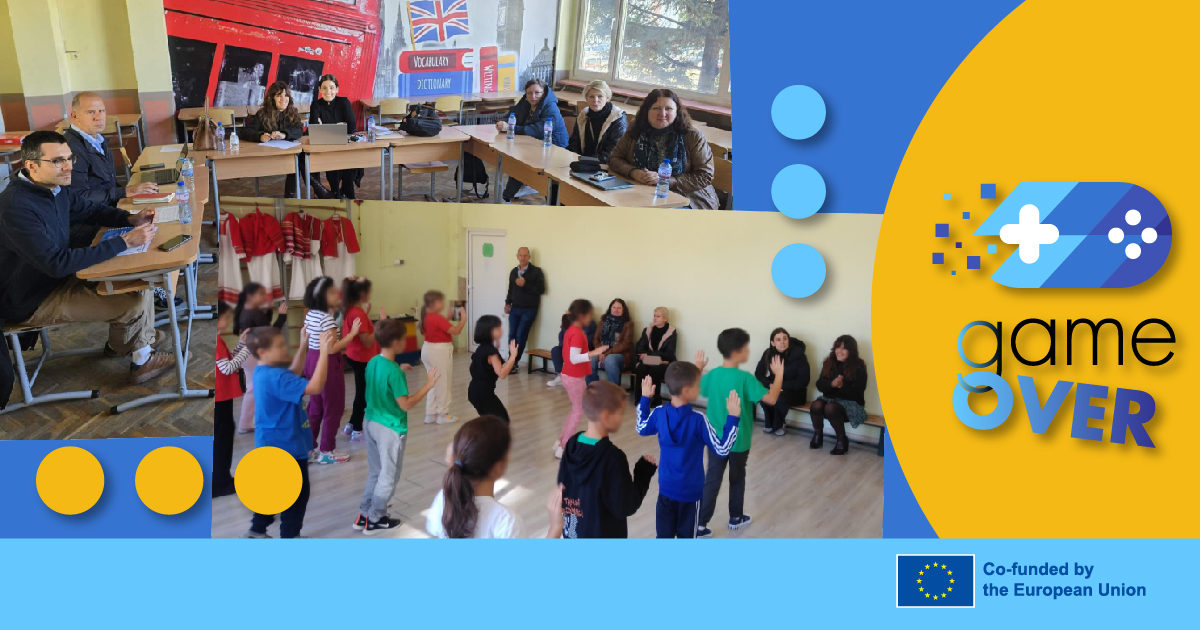The second transnational meeting of the GameOver project took place on 15–16 October 2025 in Sofia, Bulgaria, hosted by the 149th School “Ivan Hadjiiski”. Partners from Lithuania, Greece, Spain, and Bulgaria gathered to review progress and plan the next steps in developing innovative tools to address Problematic Online Gaming (POG) among students aged 12–16.
The two-day meeting opened with a warm welcome from the host organisation, followed by an overview of the agenda and project milestones. The main focus of the first day was on the Early Detection Instrument (EDI) — a key output designed to help educators identify early signs of gaming addiction. Partners discussed its current development status, pending issues, and the upcoming testing and validation phase.
Participants also had the opportunity to tour the host school and learn about its educational practices, student support systems, and digital prevention tools. The afternoon sessions introduced the design of the Toolkits for teachers, students, and parents, led by the Lithuanian team from Visagino Draugystes Progimnazija, as well as the Prevention and Early Intervention framework, coordinated by Centro San Viator from Spain.
On the second day, discussions focused on project management, reporting, and the alignment of deliverable deadlines. A cross-work package session encouraged collaboration and integration between the EDI, the toolkits, and the prevention framework — ensuring a coherent and sustainable approach.
The meeting concluded on a high note, with a strong sense of teamwork and shared purpose among all partners. As the project moves forward, the GameOver consortium remains committed to promoting digital wellbeing and empowering schools, teachers, and families to recognise and prevent problematic gaming behaviours.
More information about the GameOver project is available at https://gameover-project.eu/
